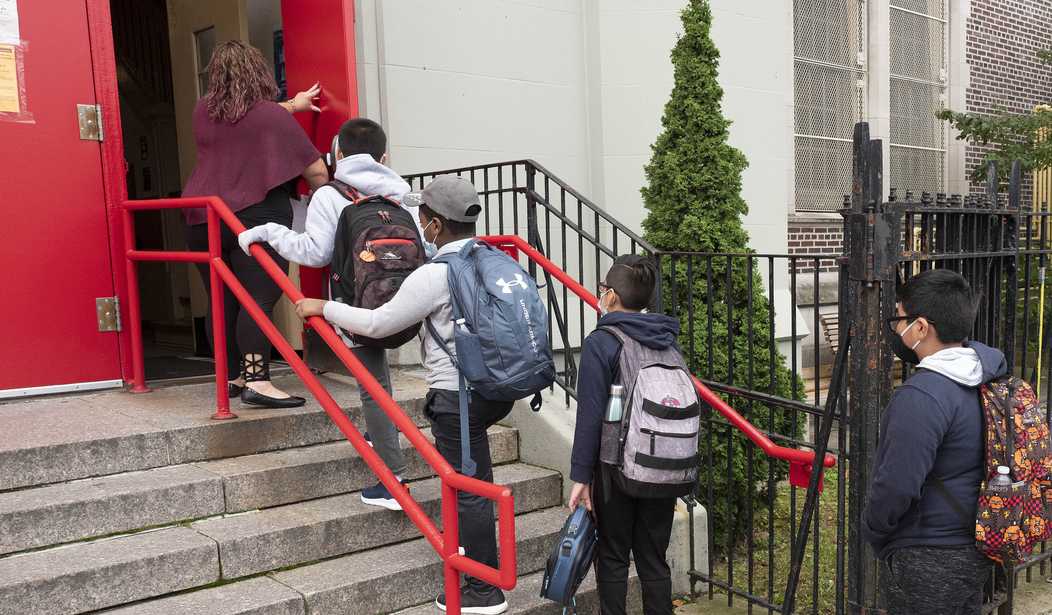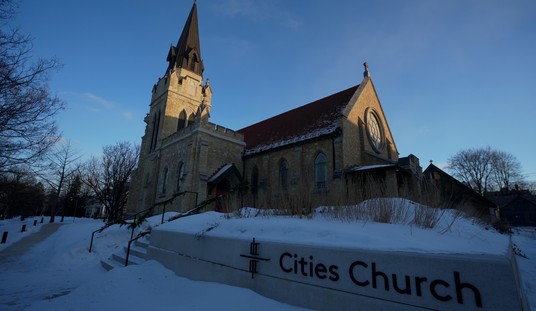Joe Biden visited a Virginia elementary school on Monday and heard from some of the children what it was like to receive virtual instruction.
“if we were really tired, we could like take a little nap,” explained one child. Another said, “Sometimes when Ms. B. was like paying attention to something else you could eat and it was fun.” Yet another student added that “If you don’t know the question, you can just pretend like your mic doesn’t work.”
This predictable behavior from pre-teens only proves that when a teacher’s back is turned, kids will try to get away with anything. It doesn’t indicate much about the futures of these kids, who have been robbed of one year of in-person education, or what ultimate effect that will have on their ability to succeed.
The students showed the Bidens their science projects before President Biden later asked the students how they liked learning virtually.
“It was OK,” another said, as other students weighed in, some seeming to groan.
“I didn’t like virtual,” one student said in response to a question from Jill Biden. “It was terrible.”
“I liked it,” another student said.
“It was difficult with all the glitches, but it ended up being pretty good. I definitely prefer it this way,” said yet another.
Whether kids like virtual learning or not is hardly the issue. It’s how effective online education can be. And many kids feel that something was taken from them through no fault of their own.
As students wind down to the remaining weeks of the school year, seniors are feeling indifferent about the virtual experience. A survey earlier this year of 169 students in the region – most of them Black and Latino – showed a majority had higher feelings of anxiety during distance learning. Most also reported that their grades dropped this academic year.
The loss of extracurricular activities and school programs that have helped propel students into college has been strenuous for students.
What this adds up to is that almost all school children — especially those in the critical grades of 1-6 — are about a year behind. And some states are going to require a child to do well on a standardized test or be held back a year.
By some estimates, nearly 66 percent of third graders in Tennessee are not meeting English language standards and would be flagged for automatic retention under the new law. Other states have similarly staggering figures. If the laws are applied as written, that suggests hundreds of thousands of American school children may not advance to the next grade, causing bottlenecks in school systems and larger class sizes that could clog the nation’s education system for years to come.
Most other industrialized nations will not have this problem because their students missed very little in-person education compared to Americans. And what of all those kids who didn’t have internet access at home? Or who simply decided not to show up for online class? One Washington state school has half of its students receive failing grades. It’s a similar situation across the country. Grades have fallen catastrophically. Where’s the money going to come from to hire the additional teachers and tutors to help these kids catch up?
Education is too important to be influenced by a special-interest group that represents the teachers rather than the children. What the pandemic proved is that teachers’ unions have far too much power and need to be limited in some way.










Join the conversation as a VIP Member